Our Projects
We work on innovative and sustainable solutions that contribute to a circular economy in low- and middle-income countries.
The members of the PREVENT Waste Alliance engage in thematic working groups on plastics, e-waste and batteries as well as organic waste.
Scroll to learn more
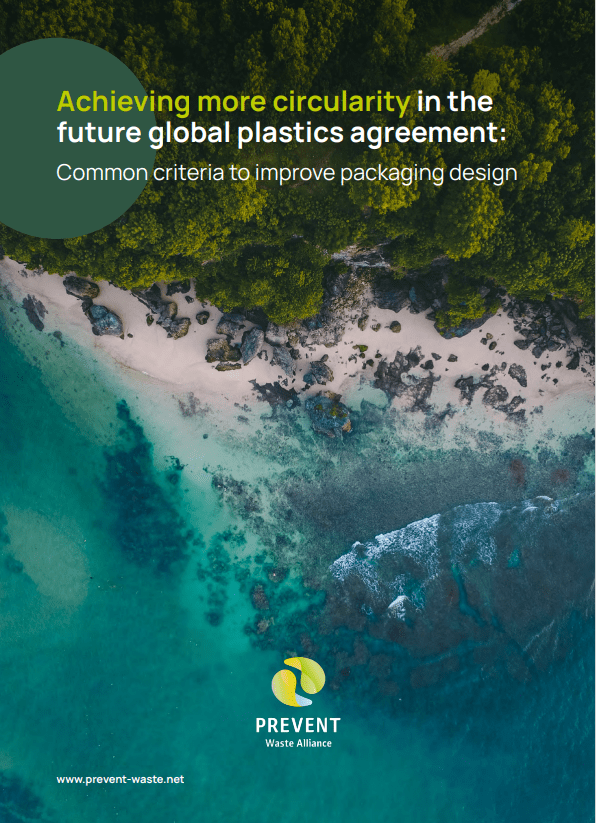
Achieving more circularity in the future global plastics agreement: Common criteria to improve packaging design
The report provides guidelines for improving the design of plastic packaging by drawing on both circular product design and eco-design principles.
Download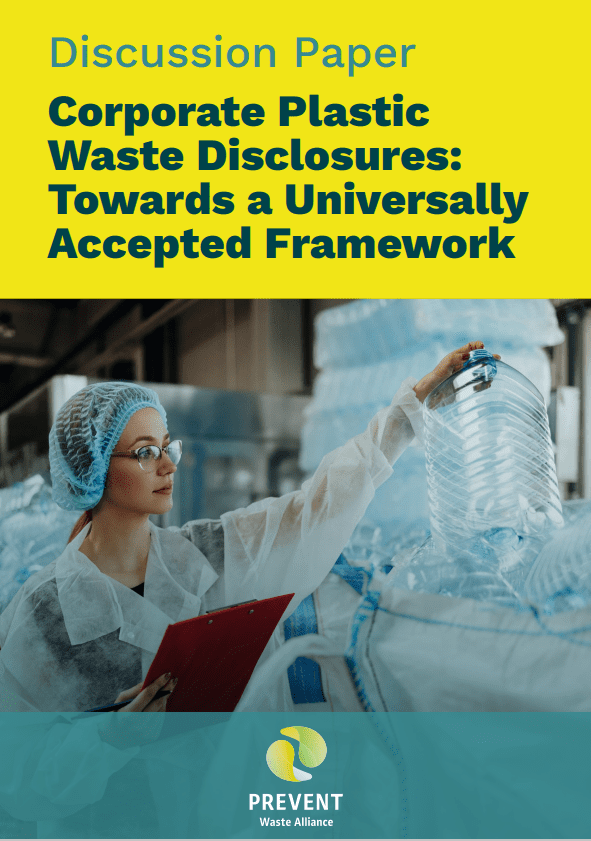
Corporate Plastic Waste Disclosures: Towards a Universally Accepted Framework
To move towards a universally accepted framework for corporate plastic waste disclosure, the sub-working group on Plastic Accounting (Corporate Stream) has developed a discussion paper. It summarizes the existing frameworks for corporate plastic waste disclosures and provides recommendations for their improvement.
Download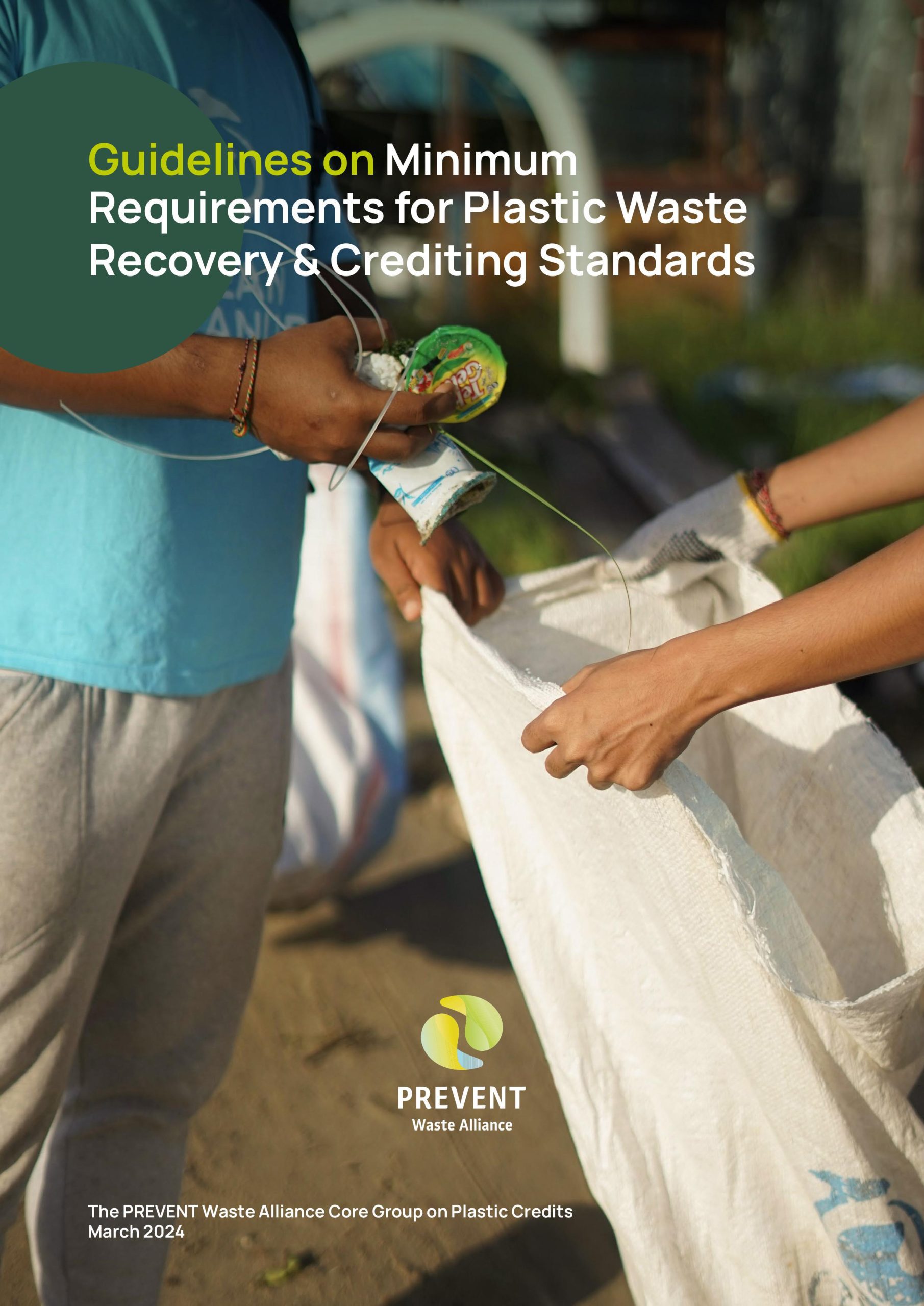
Guidelines on Minimum Requirements for Plastic Waste Recovery & Crediting Standards
This publication is a joint effort by plastic waste recovery organisations, all of them operating in developing countries and all of them members of the PREVENT Waste Alliance. These practitioners have gathered with the aim of improving the level of plastic waste recovery services in developing countries, so that ultimately more funds can flow to these services and higher environmental and social impacts can be achieved.
Download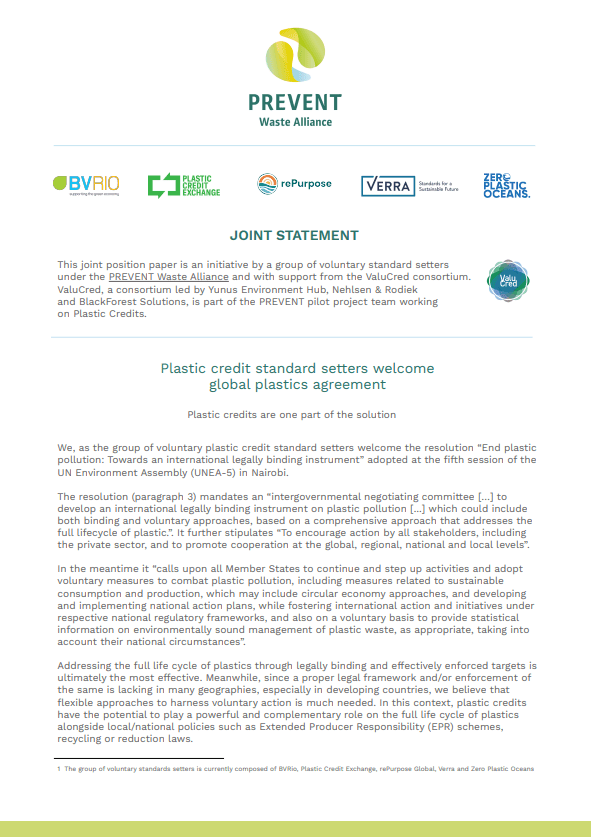
Joint statement of plastic credit voluntary standard setters
Plastic credits are one part of the solution to tackle the plastic waste crisis – this is the message of the group of plastic credit voluntary standard setters who are active in the PREVENT Waste Alliance.
Download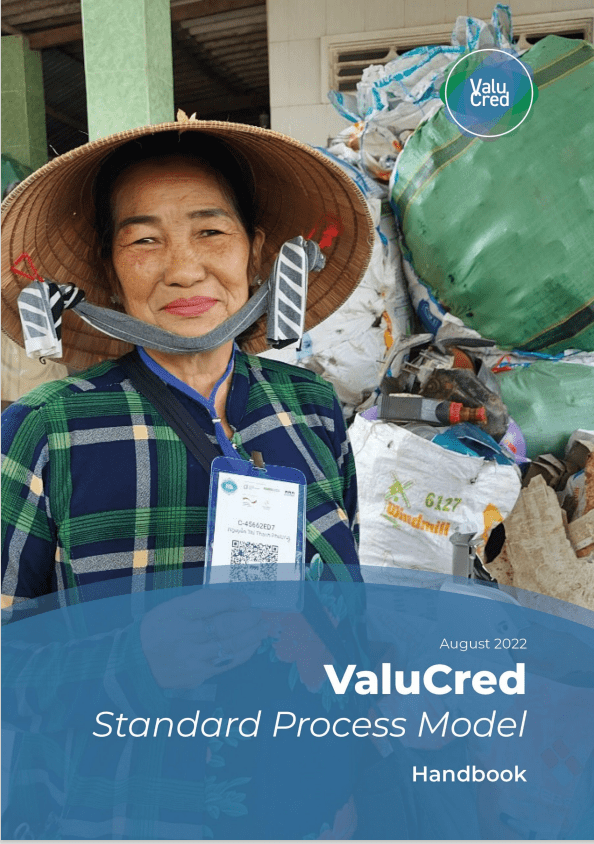
ValuCred Standard Process Model Handbook
The ValuCred Handbook introduces the key concepts of the Standard Process Model. It explains guiding principles for the integration of minimum requirements for the plastic credit market to foster greater transparency and accountability of all stakeholders involved.
DownloadSub-working groups are opened and closed according to the interests and needs of the members. Further information on the sub-working groups is provided in the PREVENT HUB, our internal platform for members.
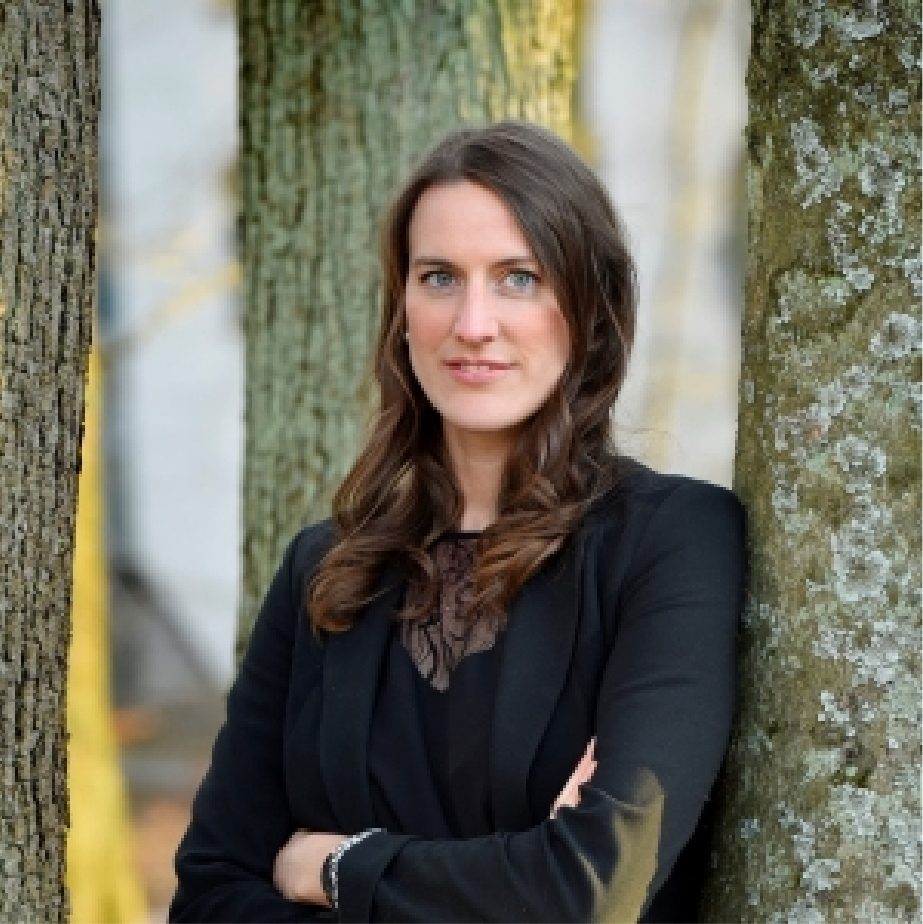
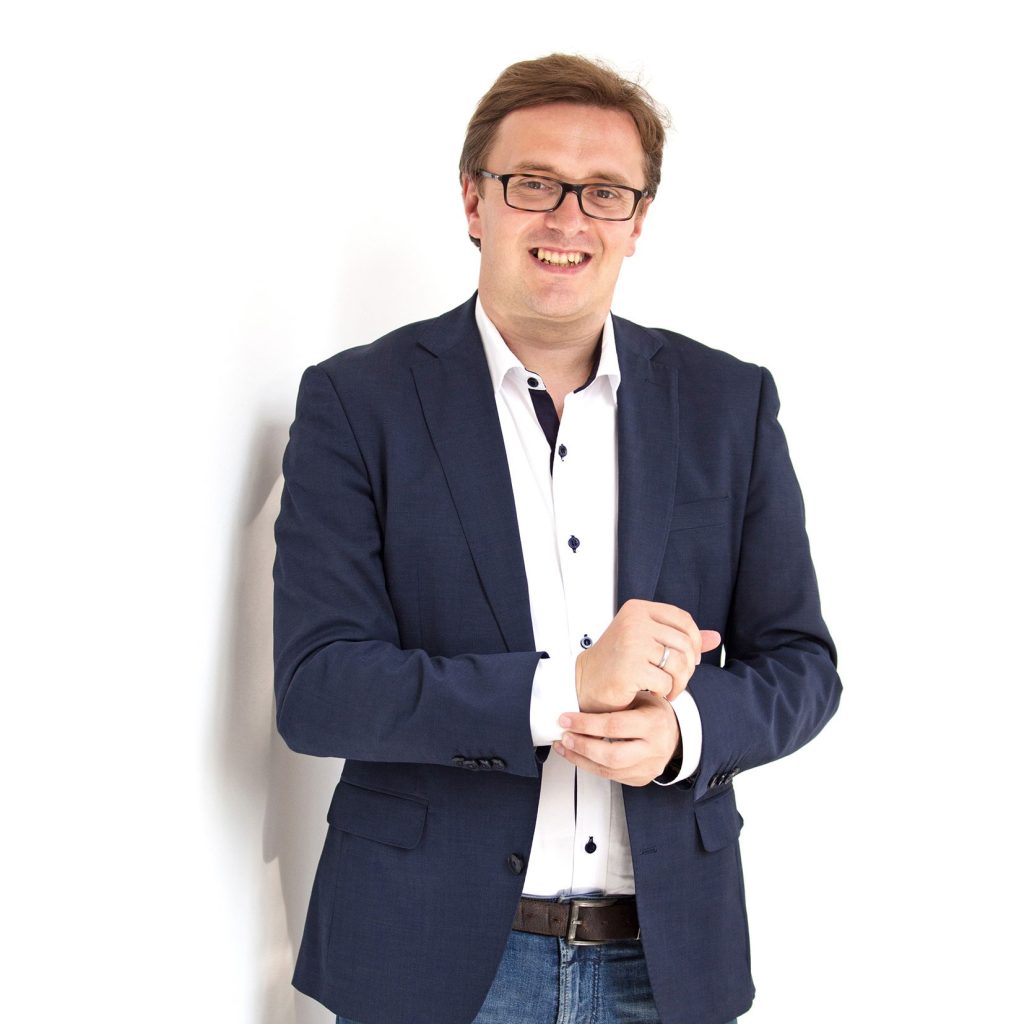
Dr. Henning Wilts
Wuppertal Institut für Klima, Umwelt, Energie gGmbH
henning.wilts[at]wupperinst.org
Steffen Blume
Deutsche Gesellschaft für Internationale Zusammenarbeit (GIZ) GmbH
steffen.blume[at]giz.de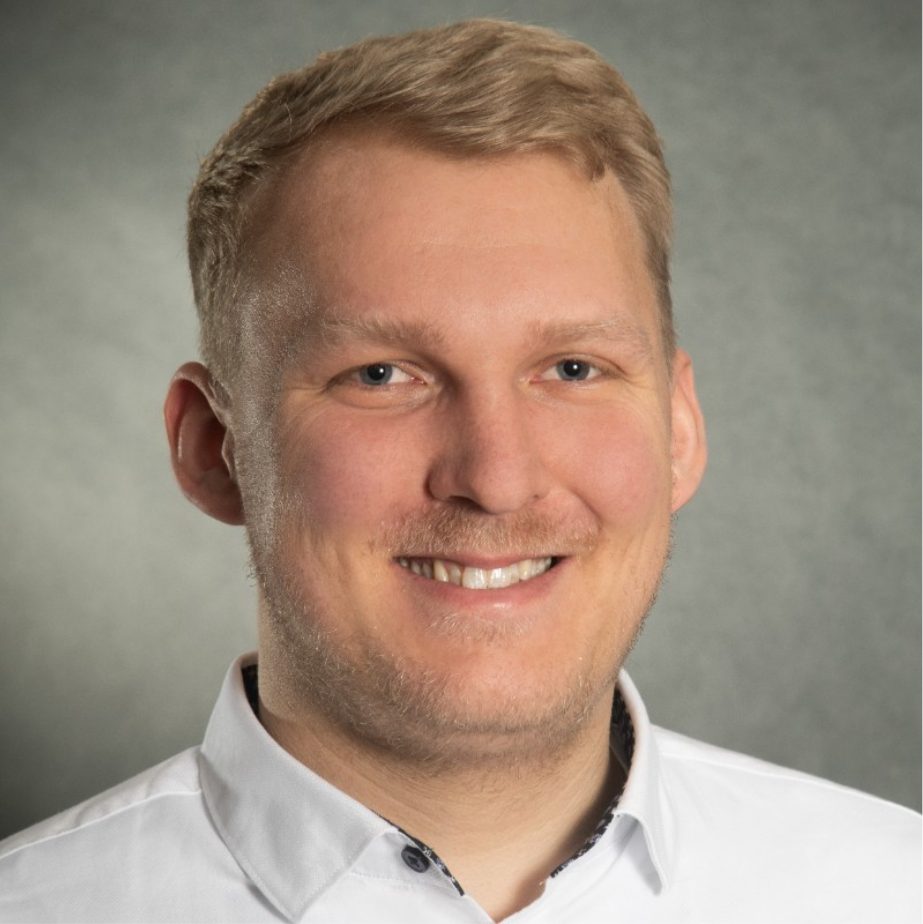
Jonas Barkhau
Deutsche Gesellschaft für Internationale Zusammenarbeit (GIZ) GmbH
jonas.barkhau[at]giz.de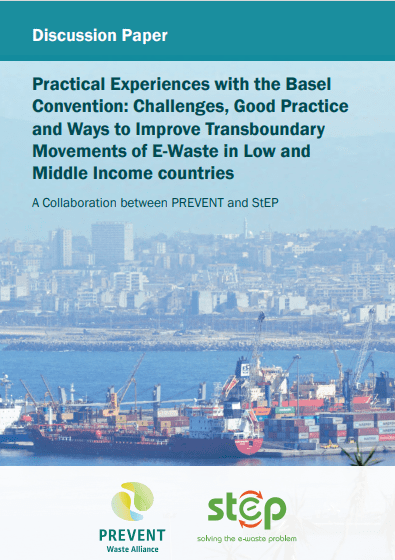
Discussion paper on practical experiences with the Basel Convention
The discussion paper was developed by the PREVENT-StEP joint working group. It gathers practical experiences with the export of waste electrical and electronic equipment and fractions thereof from low- and middle-income countries to environmentally sound management (ESM) facilities abroad according to the Prior Informed Consent (PIC) notification procedures of the Basel Convention.
Download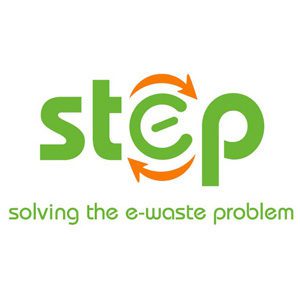
PREVENT-StEP cross-alliance working group on the implementation of the Basel Convention
Following a first exchange with the Basel Convention Secretariat in February 2021 on the challenges caused by notification procedures for the transboundary movement of e-waste, PREVENT and StEP have initiated a cross-alliance working group to collect experiences from members in different countries. The aim is to find ways to improve local implementation and facilitate transport to qualified recycling facilities abroad.
Download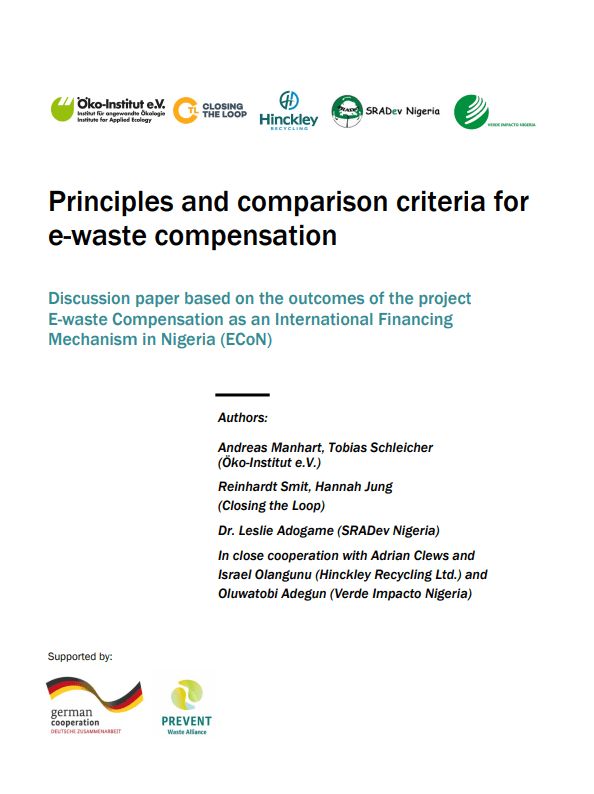
Principles and comparison criteria for e-waste compensation
E-waste compensation is a relatively new financial mechanism. Therefore, it is essential to define guardrails on how the concept should be implemented in practice. This paper contains 11 general principles of effective e-waste compensation.
Download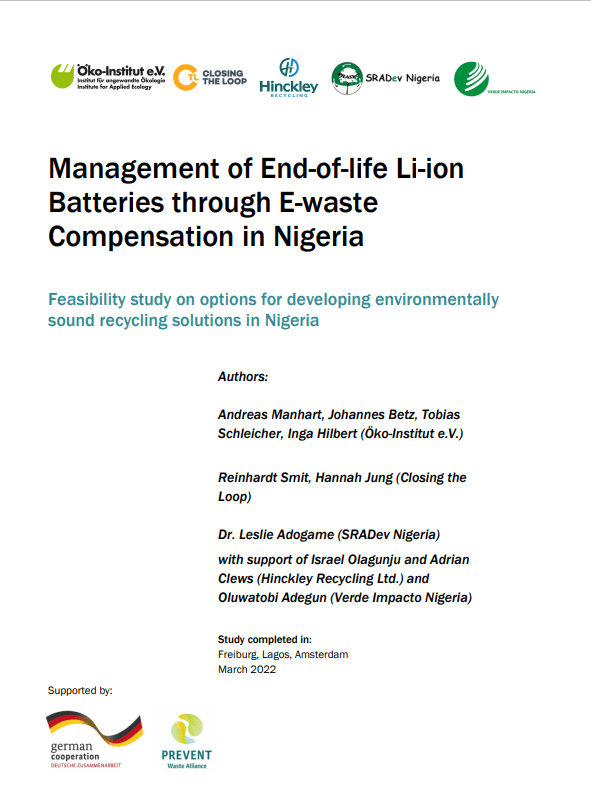
Management of End-of-life Li-ion Batteries through E-waste Compensation in Nigeria
The project 'E-Waste Compensation as an international financing mechanism in Nigeria (ECoN)' completed a feasibility study which addresses the possibilities for responsible management of end-of-life lithium-ion batteries from domestic consumption in Nigeria.
Download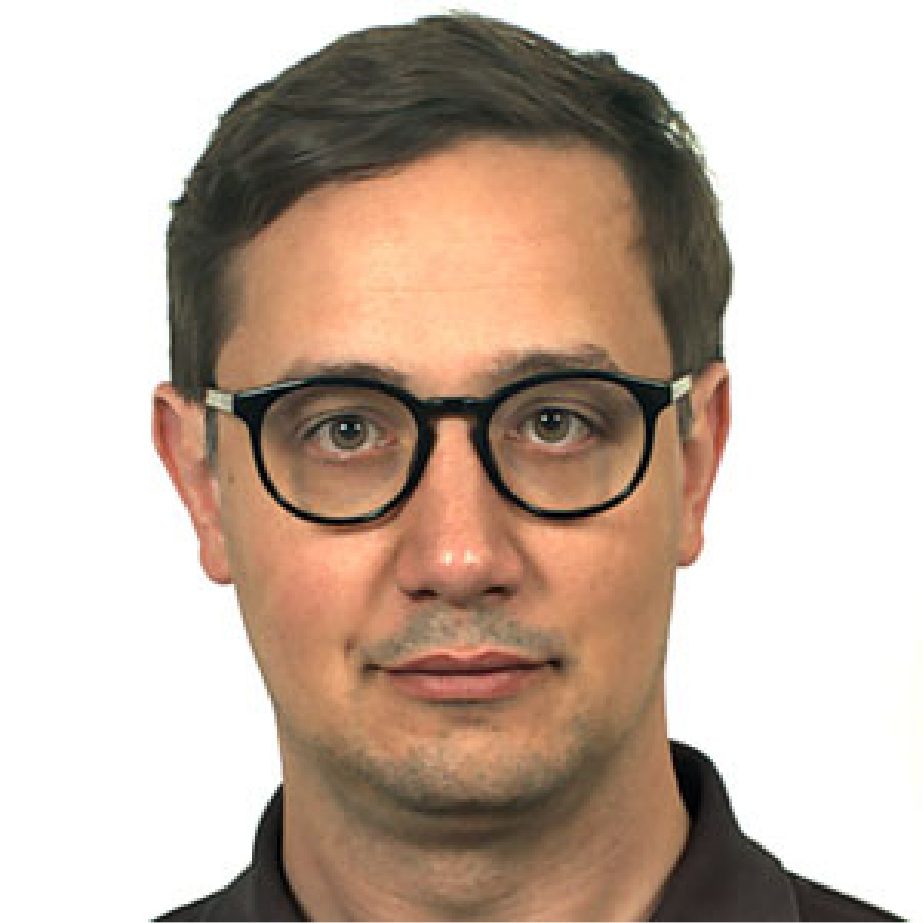
Alexander Batteiger
Deutsche Gesellschaft für Internationale Zusammenarbeit (GIZ) GmbH
alexander.batteiger[at]giz.de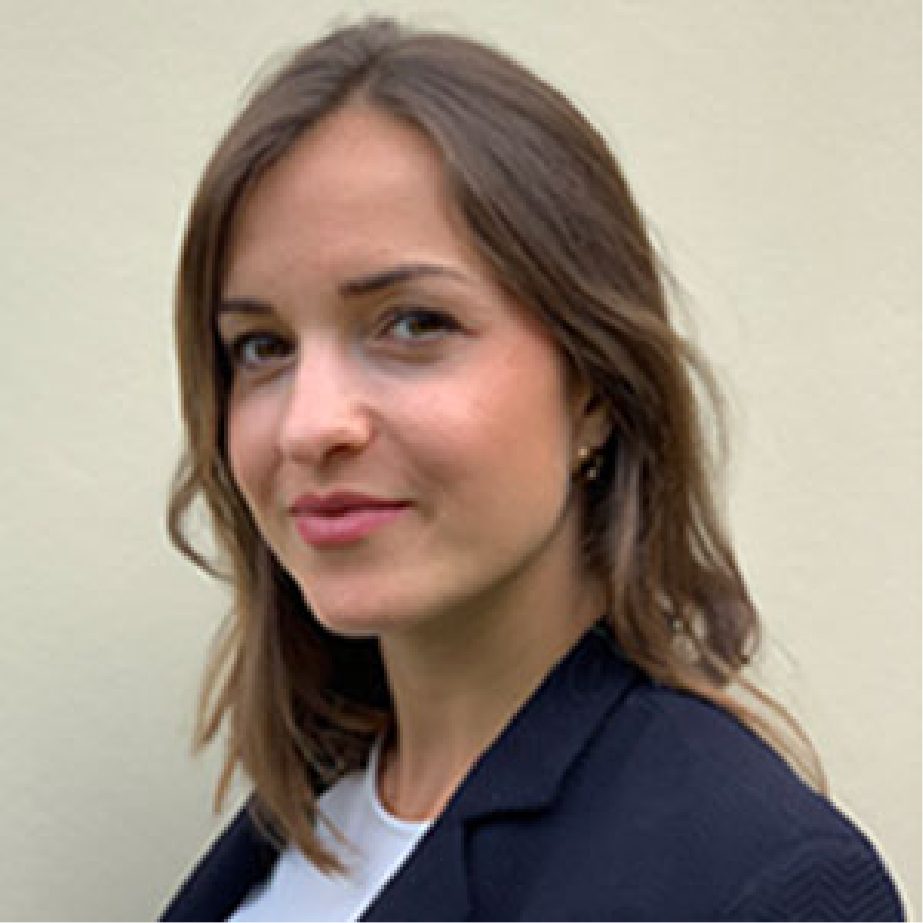
Jana Mandel
Deutsche Gesellschaft für Internationale Zusammenarbeit (GIZ) GmbH
jana.mandel[at]giz.de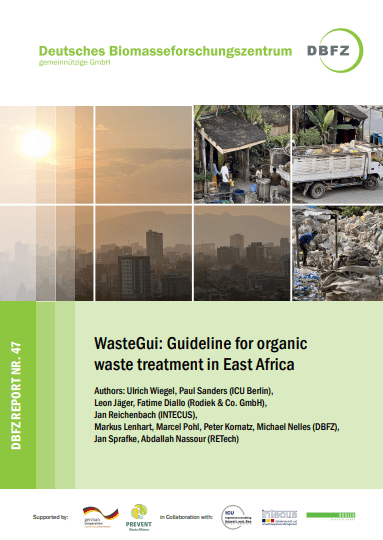
WasteGui: Guideline for organic waste treatment in East Africa
This report provides a detailed overview on concepts for collection, transport and final treatment of organic waste to inform politics, administration, research institutions, and the private sector.
Download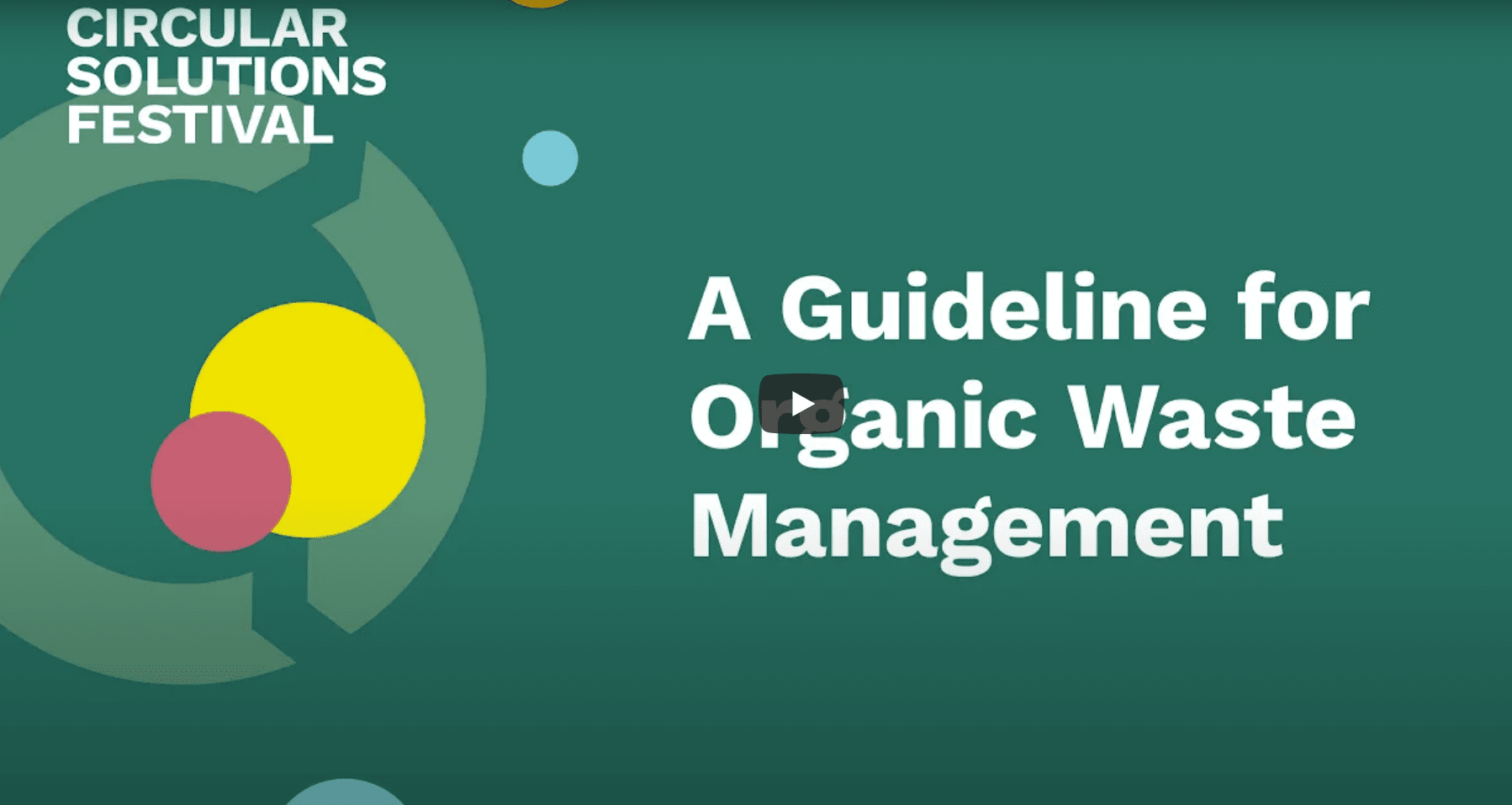
Video: A Guide to Organic Waste Management in East Africa
Untreated organic residues pose a major potential hazard to humans and the environment. At the same time, organic waste holds great potential for energetic and material utilization. This webinar gives an overview of the current organic waste management system in Ethiopia and discusses adapted logistics and treatment concepts for different settlement structures.
Download
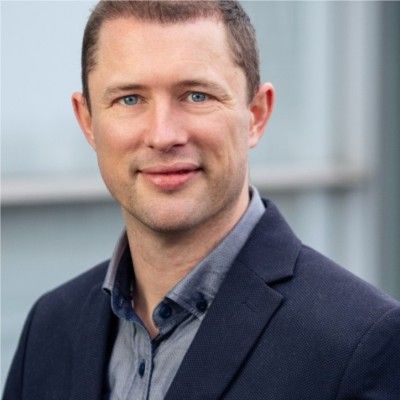
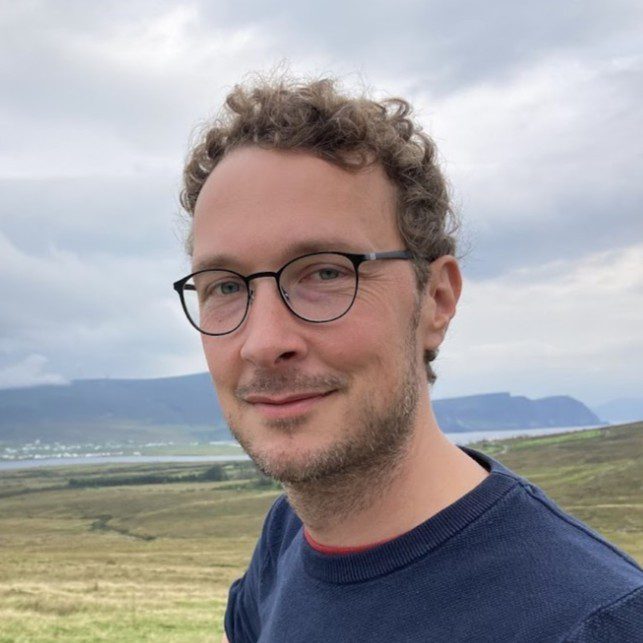
Martin Kerres
Deutsche Gesellschaft für Internationale Zusammenarbeit (GIZ) GmbH
martin.kerres[at]giz.de
Christopher Speier
Deutsche Gesellschaft für Internationale Zusammenarbeit (GIZ) GmbH
christopher.speier[at]giz.deIn addition to the working groups, we address three cross-cutting issues: financing mechanisms for a circular economy, digitalisation and awareness raising/behaviour change.
Show resources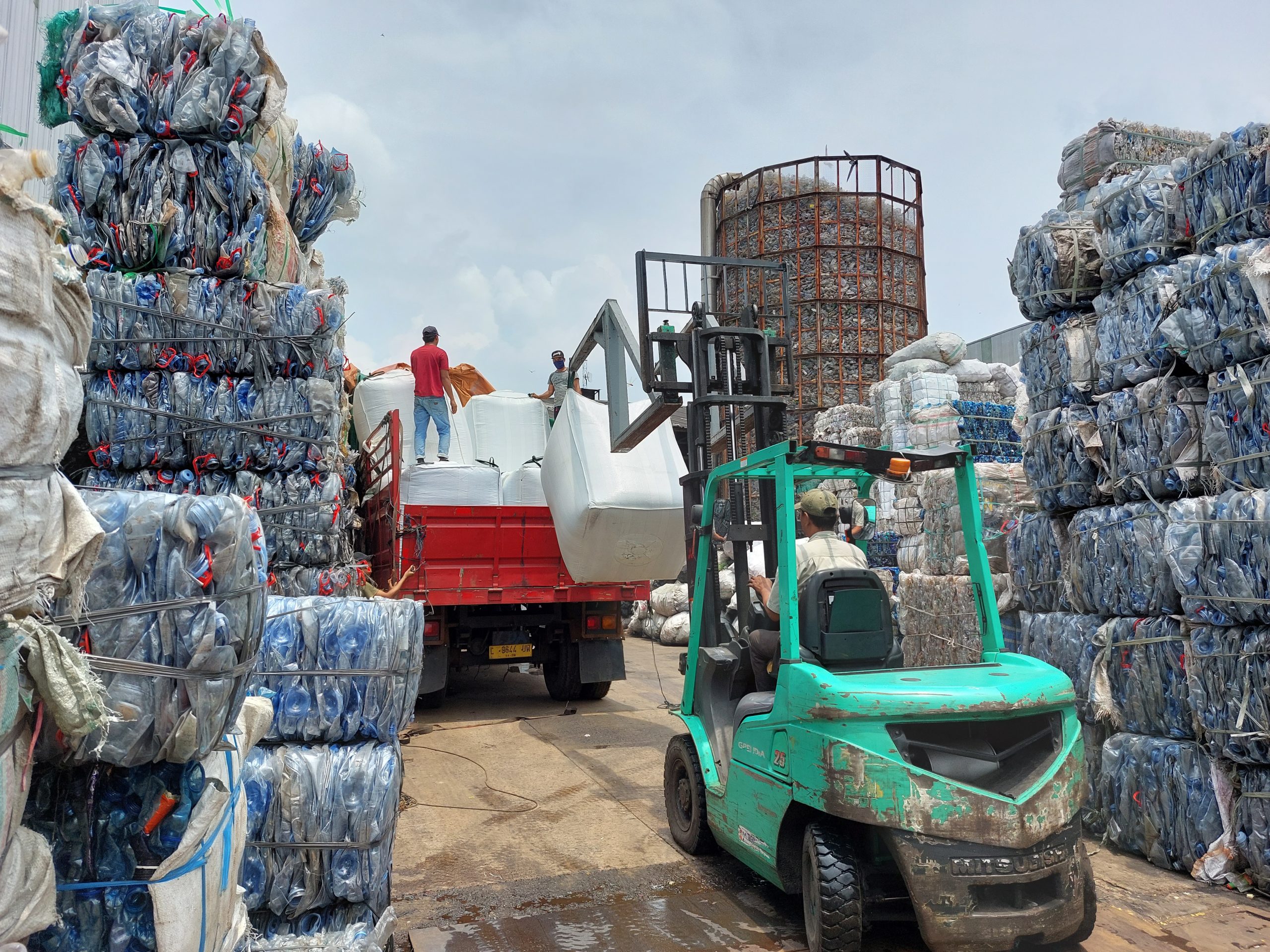
We work on innovative and sustainable solutions that contribute to a circular economy in low- and middle-income countries.
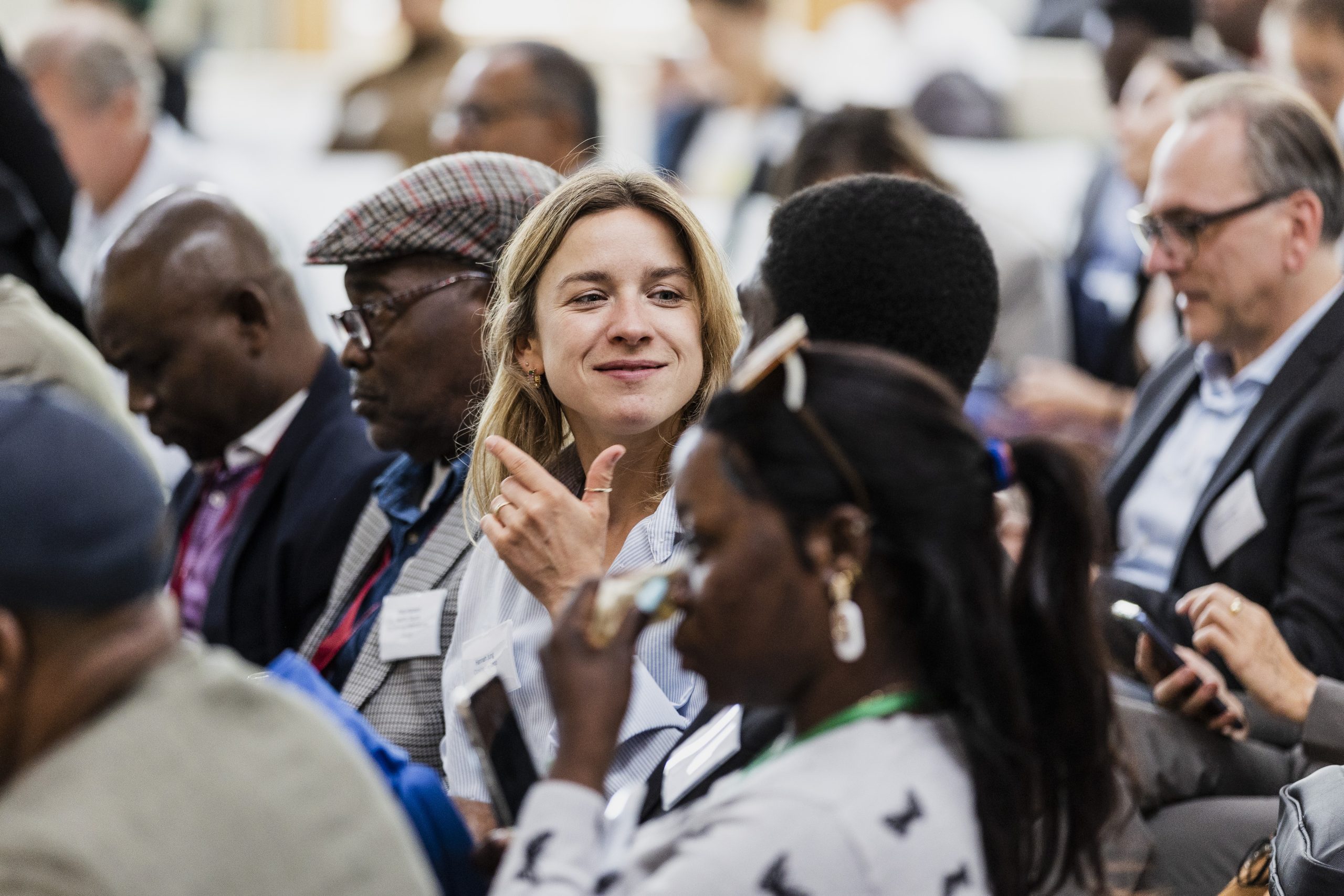
Curious about becoming a member or funder of PREVENT? Learn more about your options and benefits.